 Petzlover
Petzlover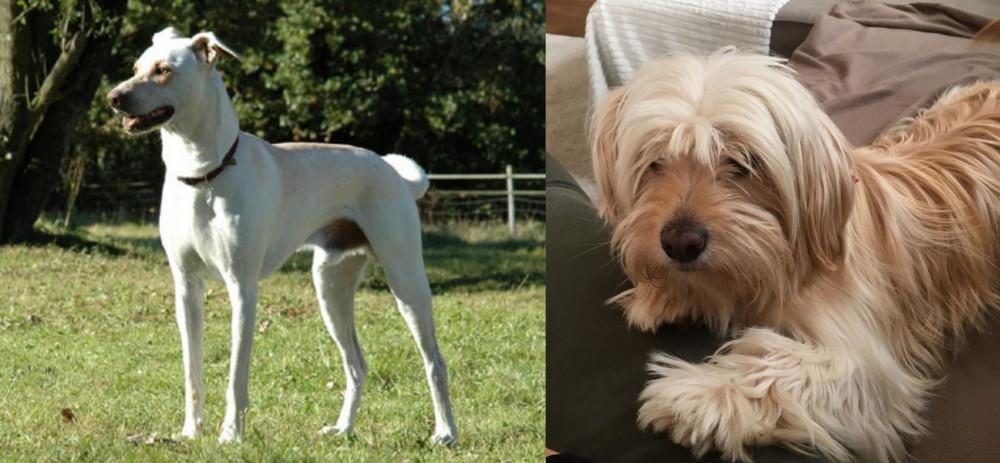 Cretan Hound is originated from Greece but Cyprus Poodle is originated from Cyprus. Cretan Hound may grow 38 cm / 15 inches higher than Cyprus Poodle. Cretan Hound may weigh 24 kg / 53 pounds more than Cyprus Poodle. Both Cretan Hound and Cyprus Poodle has almost same life span. Both Cretan Hound and Cyprus Poodle has almost same litter size. Both Cretan Hound and Cyprus Poodle requires Moderate Maintenance.
Cretan Hound is originated from Greece but Cyprus Poodle is originated from Cyprus. Cretan Hound may grow 38 cm / 15 inches higher than Cyprus Poodle. Cretan Hound may weigh 24 kg / 53 pounds more than Cyprus Poodle. Both Cretan Hound and Cyprus Poodle has almost same life span. Both Cretan Hound and Cyprus Poodle has almost same litter size. Both Cretan Hound and Cyprus Poodle requires Moderate Maintenance.
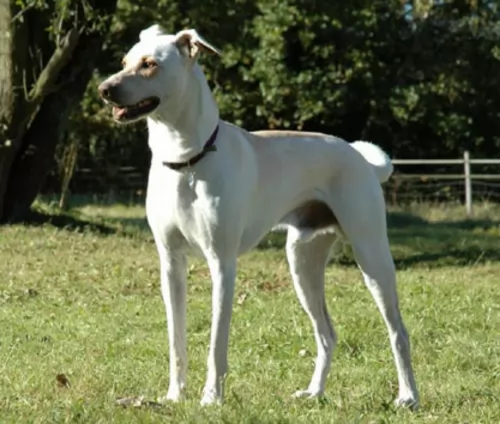 Although the Cretan Hound or the Kritikos Lagonikos is recognized in both Greece and Germany, the hunting dog breed is from the island of Crete, Greece. The dog’s history goes back thousands of years. It is an ancient breed and some believe it is one of the oldest hunting breeds in Europe.
Although the Cretan Hound or the Kritikos Lagonikos is recognized in both Greece and Germany, the hunting dog breed is from the island of Crete, Greece. The dog’s history goes back thousands of years. It is an ancient breed and some believe it is one of the oldest hunting breeds in Europe.
The Cretan Hound has been bred as a working dog, combining sight and scent to track down their prey. Today it is still a rare dog breed that you won’t easily find outside of Crete.
Greece kennels recognize this dog as well as some European kennels, but it isn’t recognized by the American Kennel Club.
 Unfortunately the Island of Cyprus may well be beautiful and have a wonderful climate, but when you take a deeper look, the island has a serious problem with feral cats and stray dogs.
Unfortunately the Island of Cyprus may well be beautiful and have a wonderful climate, but when you take a deeper look, the island has a serious problem with feral cats and stray dogs.
The many sanctuaries battle to keep up with the volume of neglected and abandoned animals on the island. One of the dogs found on the Island of Cyprus is the Cyprus Poodle. Some people say that the Cyprus Poodle is a cross between a poodle and a terrier.
Today this small dog is sought after in other countries for his loving personality and attractive looks.
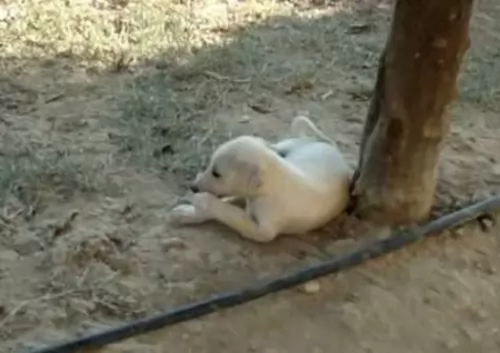 Known for its extraordinary scent abilities as well as its speed, this dog has always been used as a hare hunter because of these skills.
Known for its extraordinary scent abilities as well as its speed, this dog has always been used as a hare hunter because of these skills.
It’s a slender dog of medium to large size and stands at about 60-68cm in height and weighs between 20 – 30kg. It is lean, strong, muscular and swift with a body that is inclined to be longer than tall.
He is slightly heavier than other scenthounds and his ribs aren’t seen. The head is wedge-shaped and the ears drop down, are folded back or can be semi-erect. The eyes are dark and the tail is long and curves upwards with longer hair being found on the tail.
The coat is short and smooth, and coat colors of the dog are varied and can be fawn, sandy, grey, white, black or brindle, and it can be tri-colored too.
The Cretan Hound is alert to sight, sound and scent and when it senses prey, the tail moves in a circular way and the dog becomes rigid for a while before he is off on the hunt.
He is a gentle, intelligent dog, reserved around strangers but making an excellent family pet as he gets on well with all his human family members as well as pets in the house. With good training and socialization, the dog becomes more relaxed around strangers.
He isn’t an aggressive dog, and while he is alert to sounds and smells, he doesn’t make a particularly good watchdog.
 The Cyprus Poodle is such an attractive little dog with his jaunty personality and his dense, curly hair.
The Cyprus Poodle is such an attractive little dog with his jaunty personality and his dense, curly hair.
He stands in the region of 20 to 30cm and can weigh roughly 3 to 6kg. His hair is essentially cream or white with orangey tips and some people claim he is a cross between a poodle and a terrier.
He is a small dog. His curly coat is woolly and can be in a number of different colors such as white, ivory or apricot or even other colors.
The curly haired Cyprus Poodle isn’t a huge shedder but regular clipping keeps him looking nice and makes sure the coat doesn’t matt.
He has floppy ears, a long tail and brown eyes. He loves to go for a swim and then to dart around the place so he may require a bath every now and again to keep his beautiful coat clean and free of matting.
The Cyprus Poodle is an even tempered dog and he makes the perfect family pet, forming close bonds with his human family members.
He is playful, social and friendly and gets on well with children in the home as well as any other pets. He may be a small, friendly dog, but he will need training and socialization if you want him to be obedient and relaxed around other people.
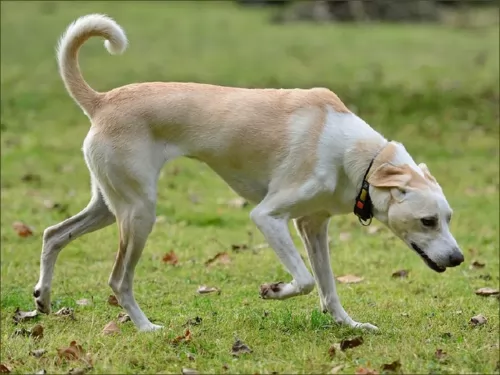 The Cretan Hound is an energetic, curious dog, but when it comes to being a family pet, he is affectionate and gentle.
The Cretan Hound is an energetic, curious dog, but when it comes to being a family pet, he is affectionate and gentle.
He is a reserved dog around strangers. He likes to be busy and will love his walks and games with his human family members. He is smart so is readily trained and he likes to be obedient and to please.
The Cretan Hound will live in harmony with other dogs in the home and they’re also patient and good around disciplined children who have learned to respect animals.
Provide your Cretan Hound with his fair share of love and attention and he will go out of his way to be a loyal and loving family friend.
 Your Cyprus Poodle is just dying to be a member of a human family because he has a lot of love and friendliness to give.
Your Cyprus Poodle is just dying to be a member of a human family because he has a lot of love and friendliness to give.
He wants lots of love and attention in return though. He doesn’t like to be put out in the garden and forgotten about. Make sure that he is a fully involved family member.
He is such a friendly, loving, social little dog and in exchange for your love and care, he is guaranteed to make you a most wonderful and loyal friend.
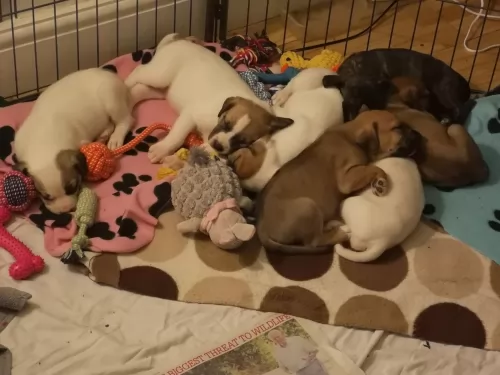 The Cretan Hound is a healthy, robust dog breed, but even so, he can suffer from some common health problems that other dogs are also susceptible to. Some of these are hip dysplasia , cancer, ear infections, bloat and cherry eye.
The Cretan Hound is a healthy, robust dog breed, but even so, he can suffer from some common health problems that other dogs are also susceptible to. Some of these are hip dysplasia , cancer, ear infections, bloat and cherry eye.
Remember that if you don’t want your dog to have puppies, they can actually benefit health-wise from being spayed or neutered. Doing this for your pet can prevent a number of health issues later on down the line.
Make sure too, that your puppy receives his vaccinations in a timely fashion so as to avoid terrible, life threatening illnesses such as parvo and rabies.
 Because the Cyprus Poodle is a cross-breed, he is a robust, long-life dog and not likely to get ill very easily.
Because the Cyprus Poodle is a cross-breed, he is a robust, long-life dog and not likely to get ill very easily.
Your Cyprus Poodle can have between 1 to 6 puppies but there are tremendous health benefits waiting for your pet when you ensure that he is rather neutered or spayed in the case of a female. Make sure too that he has all his vaccinations up to date. Make sure he has an excellent diet, a warm, dry place to sleep, he is exercised and that he gets regular check-ups from the vet.
There are some common dog illnesses that you want to look out for. When he is a puppy make sure that he gets the necessary vaccination against life threatening illnesses such as parvovirus, distemper and rabies.
There are some diseases that do affect poodles a little more than with other breeds, and one of these is Cushing’s Disease.
This is an illness that comes about when the body of your dogs makes too much cortisol. It is difficult for you to see symptoms of this disease in your pet, but if he is displaying unusual behavior, then you want to get him to the vet who can decide on treatment for him.
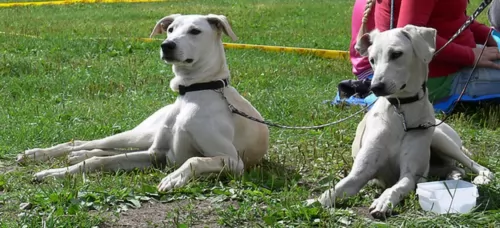 You’re certainly not going to have to do too much grooming with the Cretan Hound as he is a low maintenance breed.
You’re certainly not going to have to do too much grooming with the Cretan Hound as he is a low maintenance breed.
The dog is a short haired breed and an average shedder, so a good brush twice a week will keep the coat free of loose hairs and maintain the condition of the hair.
As with all dogs, the nails as well as the ears must be checked and attended to. The veterinarian can advise you on how to keep his ears clean and free of infection, as prodding around without knowing can damage his ears.
This Cretan Hound has high activity needs. He is energetic and also hard-working, and you’ll need to be taking him on long walks and providing him with some highly energetic playing sessions. Throw ball for him and take him with you when you go jogging or cycling.
 A cyprus poodle makes such a good pet and you will want to ensure that you feed your one an excellent diet so that he remains healthy and content.
A cyprus poodle makes such a good pet and you will want to ensure that you feed your one an excellent diet so that he remains healthy and content.
Some people are overwhelmed at the sheer variety of commercially manufactured dog foods today, but the choice can be made a lot simpler by sticking to the better quality ones where protein is at the top of the ingredients list.
Home made food such as cooked brown rice, vegetables and cooked chicken will be excellent for your Cyprus Poodle as well as including some raw meat in the diet. Make sure he always has access to cool, clean water as this water is essential to his health, making it possible for all his bodily functions.
Brush his hair regularly and brush his teeth 2 or 3 times a week. Make sure to use toothpaste and toothbrush specially designed for dogs.
Your poodle will happily slot into life with you in the city or the country, but even if you have a garden, you can’t expect your dog to always find his own entertainment. Take your poodle for walks and play games with him so that he remains healthy and content.